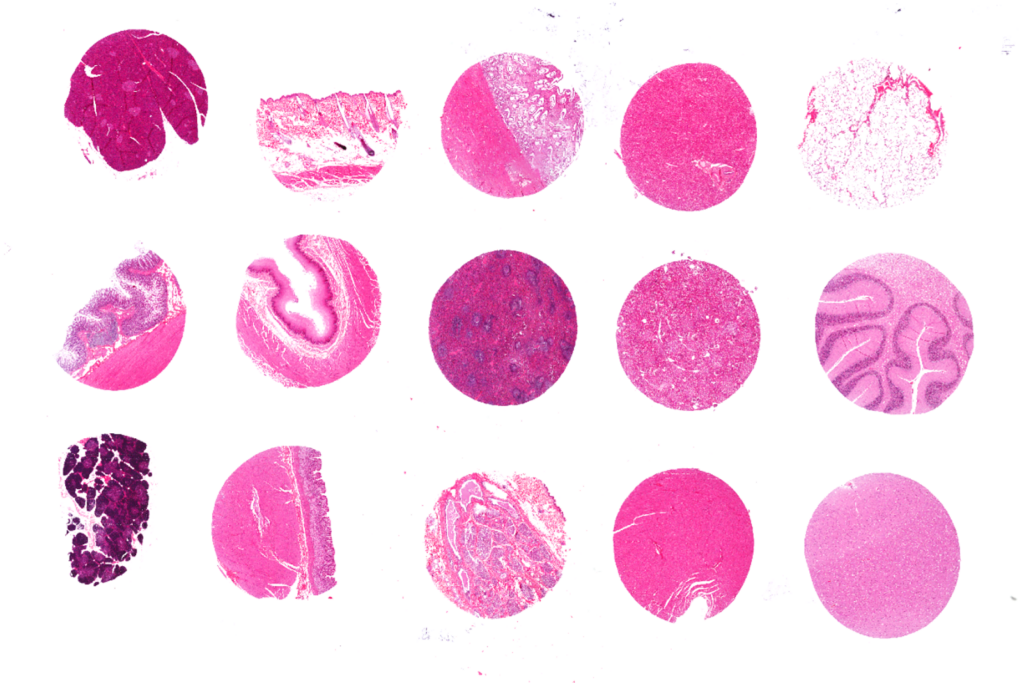
#EBW24 Editorial: Unlocking the Power of Veterinary Samples and Biobanking – A Promising Source for ”One-Health” Research
This article comes from the team at VetBiobank who will be presenting at EBW24.
What you do?
The VetBiobank collects veterinary samples from the clinics of the University of Veterinary Medicine Vienna. Its aim is to archive high-quality samples from diseased animals and corresponding healthy reference controls for research purposes. Currently, the collections mainly consist of tumor and healthy reference tissues from cats and dogs.
Together with the human biobanks of the Austrian medical universities, the VetBiobank is one of six consortium members of BBMRI.at, the Austrian national node of BBMRI-ERIC. The VetBiobank, like its human counterparts, has – already in 2016/2017 – implemented sample quality management in accordance with the corresponding pre-analytical ISO/CEN standards. This provides the basis for comparative analysis of human and animal clinical samples.
Why is your topic important?
Veterinary samples are a valuable resource for comparative medicine, where similarities and differences between diseases in animals and humans are studied. This aspect focuses specifically on clinical samples, which are obtained from companion animals during diagnosis or therapeutical interventions of specific health conditions. The respective counterpart to these animal samples are clinical samples obtained from humans.
Animals can develop diseases that are similar to those in humans, such as cancer, diabetes or heart disease. Comparative oncology, for example, examines cancer in both animals and humans. In this field, companion animals like dogs are particularly relevant, as their spontaneously developed tumors exhibit numerous similarities to their human counterparts in terms of their clinical presentation, histological features, molecular profiles, response to therapies, drug-resistance, and the development of metastases.
Clinical veterinary samples obtained from companion animals such as dogs and cats, which share the same environmental conditions with their human counterparts, also offer the opportunity to advance research towards a ‘One Health’ approach. By conducting comparative studies, researchers can translate knowledge gained from relevant animal models to humans, while also companion animals will benefit by the discovery of more effective therapies.
Overall, veterinary samples play a crucial role in comparative medicine and One-Health research, contributing to a better understanding and treatment of diseases in both animals and humans and are therefore both valuable actors in the biobanking community and a valuable partner for research
Which innovations are going on in this field?
The importance of veterinary specimen collections is increasingly being recognized, particularly in the context of the One Health research initiative. This has led to a significant increase in the establishment of veterinary collections. BBMRI-ERIC is aware of the potential of high-quality veterinary collections and aims to incorporate more veterinary collections into the consortium by encouraging its national nodes to include their veterinary partners into their biobank networks.
BBMRI-ERIC will use the infrastructure already established to support these new partners. In addition, the VetBiobank is willing to share its expertise in sample processing and data collection with this new community. The ultimate objective of this initiative is to create a comprehensive pool of high-quality veterinary samples and data, covering various diseases and healthy reference biospecimens to advance research in the field of comparative medicine and One-Health, as well as to enable participation in relevant international research projects.
Why is the EBW interesting for you?
The EBW offers the opportunity to highlight the importance of veterinary sample collections within the biobank community. During the event, we will deliver both a presentation and a poster. Our goal is to demonstrate that it is important and possible to establish high-quality sample collections in veterinary medicine that meet the same standards as in human medicine.
These collections form a valuable basis for comparative molecular research. While there are currently only two biobanks listed in the BBMRI-ERIC Directory that focus on collecting veterinary samples from companion animals, we believe there is untapped potential.
Many veterinary universities/faculties in BBMRI member countries could contribute valuable veterinary samples from clinical settings and make them accessible for research purposes. As only a limited number of veterinary partners are expected to attend the congress, it is crucial for us to engage not only with the human biobank community but also with representatives from the BBMRI nodes. They can help us to promote this initiative in their respective countries.
Join us
Join the team at the congress by booking your ticket to this year’s EBW.